JAMM Labs Mission Statement
Draft text: not for distribution. See also:
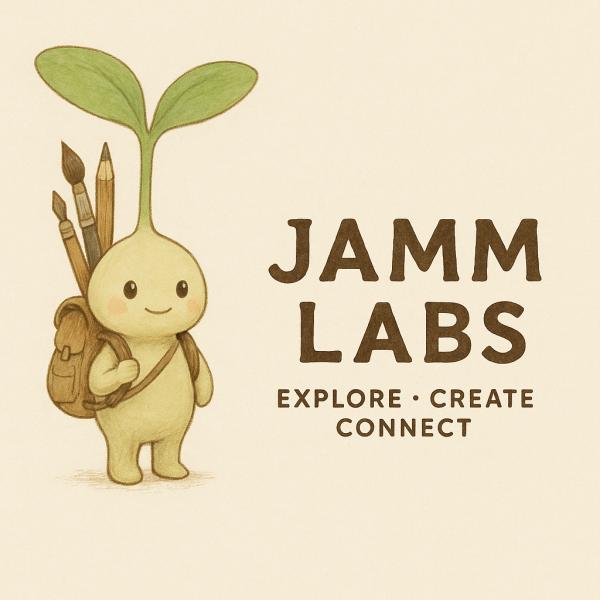
JAMM Labs Overview
-
JAMM Labs is a new project of the Scavenger Labs company which is founded on exploratory, expressive and collaborative uses of low cost, low impact, open source digital technology.
-
JAMM Labs builds on the existing work of Steve Summers with Noisy Toys, the Todmorden Makery workshop, and Mick Chesterman’s PhD research on collaborative game making.
-
JAMM Labs are workshops or short courses involving a collaborative approach to playing with technology as a way of learning diverse skills, as a way to express ourselves in communities, and which build teamwork skills. We hope to see you at one.
-
JAMM Labs are also physical centres (currently in Todmorden and Hebden Bridge) where activities happen and volunteers can come and contribute there time and skills. Come visit us.
-
JAMMing is an inclusive educational process is based on Project Based Learning and follows principles of UDL universal design for learning. Have a look at our free resources or invite us to collaborate to create more.
Our core activities
This section gives a brief sketch of what we get up to.
- Music, media, and storytelling: animation, digital music making, puppet shows, audio podcasting, video news reports
- STEAM (STEM + Arts): fun robotics projects, coding digital games, electronics through LED lights and motors.
- Tinkering and environmental exploration: Unmaking, taking apart of consumer electronics, using of environmental sensors to monitor the quality of our environment.
For more information on how we work in these areas see our Projects page.
Ethos and principles
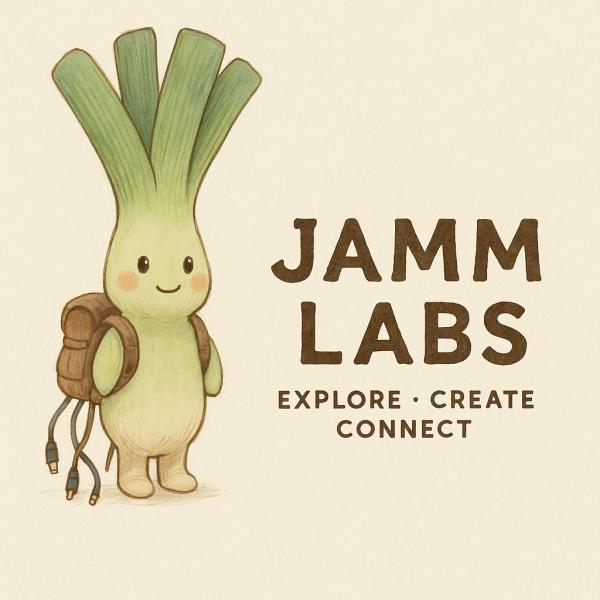
The ethos of the JAMM Labs can be summed up as following:
- Wellbeing: A balanced approach to technology use which acknowledges both its creative and collaborative potential and potential for harms to health. Our playful approach helps here.
- Critical digital literacy: Acknowledging tech’s limitations and promoting digital resistance where needed.
- Intergenerational learning: With families, home educators, and varied age community groups.
- Environmental awareness: Reuse of scavenged materials in projects, refurbishing laptops and exploring impact of technology.
JAMM Labs organising principles
Our principles are inherited in part from our parent project Scavenger Labs. We try to communicate them in a straight forward way for our audience of young people, home educators and educational partners. Our work aims to be:
- under-pinned by wider ideas of well being and positive mental health. We advocating a balanced approach to screen time, and value family collaboration on digital projects as a basis for discussing online media and game use. Our interest based approach to learning can be seen as a person-centred approach to education.
- based on principles of inclusive education, allowing diversity and choice concerning forms of expression, communication and engagement (principles of universal design for learning UDL).
- informed by a participatory approach to digital resistance. Not all technology is positive. We recognise this and are willing to fight together for a better future which may involve resiting new forms of technology if they are not positively for people and planet.
- oriented around creating real projects and sustained engagement, but also offering taster workshops to see if the project area is suitable and engaging.
- based on permaculture principles: including the use of waste products, or reusable technology to reduce environmental impact and to explore related issues.
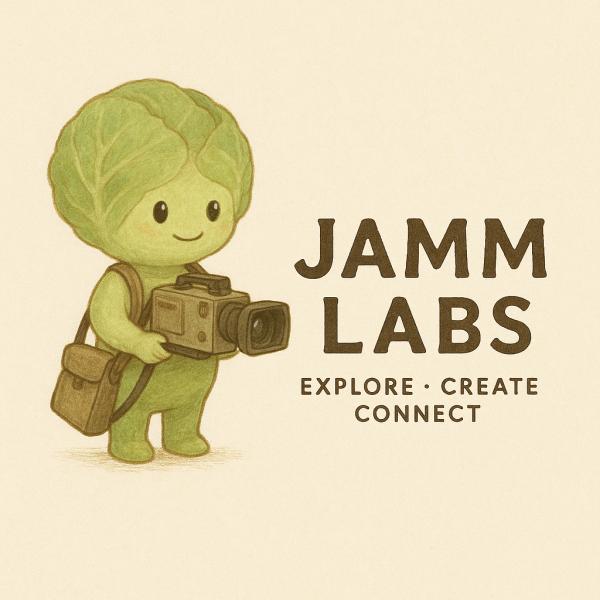
JAMMing - the JAMM Labs learning process
Our process is based on Project Based Learning with particular supports around the way we structure choice and self-expression with in projects and the social processes involved. The features of process is described below and is the subject of Mick Chesterman’s PhD work. Features include:
- A clear and attractive mission for the project
- A low stress taster session where participants can tinker with a starting project in a way which gives them a lot of feedback and a chance to try before committing
- 4-6 (usually weekly) project sessions providing the chance of sustained engagement
- Choice-based development of the project
- Regular social feedback from peers
- A final show case event to work towards.
- Being part of an ongoing community to share ongoing creations and ask questions after the life of the group project.
Audiences and partners for JAMM Labs activities
Young people and Families
While not all of our work involves young people and families, they are our main audience. In particular from 8 - 14 (KS2 & KS3)
- Young people and families getting experience in community / informal settings
- Home educating families and networks
- Young people in other forms of alternative provision of education
- Young people and families at our events and installations at Galleries, Libraries and Museums
Schools are not included here as they are covered by our other venture Noisy Toys
Institutional Partners
We work partners to help us create our resources packages and to provide them with consultation services and hands-on support in running inclusive, experimental learning projects. The varied types of partners we work with include:
- Universities undertaking research or outreach activities.
- GLAM institutions (Galleries, Libraries, Archives, Museums).
- Local government (council education and outreach projects, town councils) needing support in project delivery.
- NGOs and educational enterprises.
Adults in our local community
At the Makery workhop in Todmorden, volunteers as drop-in sessions would help create the resources we needed. Other DBS checked volunteers with valuable skill and experience help us with delivery of workshops.
- Volunteers wanting to help our mission to provide education for young people
- Adults wishing to develop technical skills in an accessible and creative way
- Team building creative exercise (especially for researchers and educators)
Case Studies
The following case studies from our previous and on-going work help communicate a grounded perspective of how the above will be put into practice. See also a draft operational plan here.
Case Study - Green and Pleasant Computer Club
Motto: Let’s compute like it’s 1999
Summary: The Green and Pleasant Computer Club (RECC) is a community programme that helps people explore a slower, lighter, and more independent way of using computers. Alongside practical skills, the club supports mental health self care through calmer, more intentional digital habits and an ethical approach to technology.
**Pilot Project 2025 **
Our pilot with adults in November / December 2025 was initially with adults but there is fantastic scope for intergenerational work in this area.
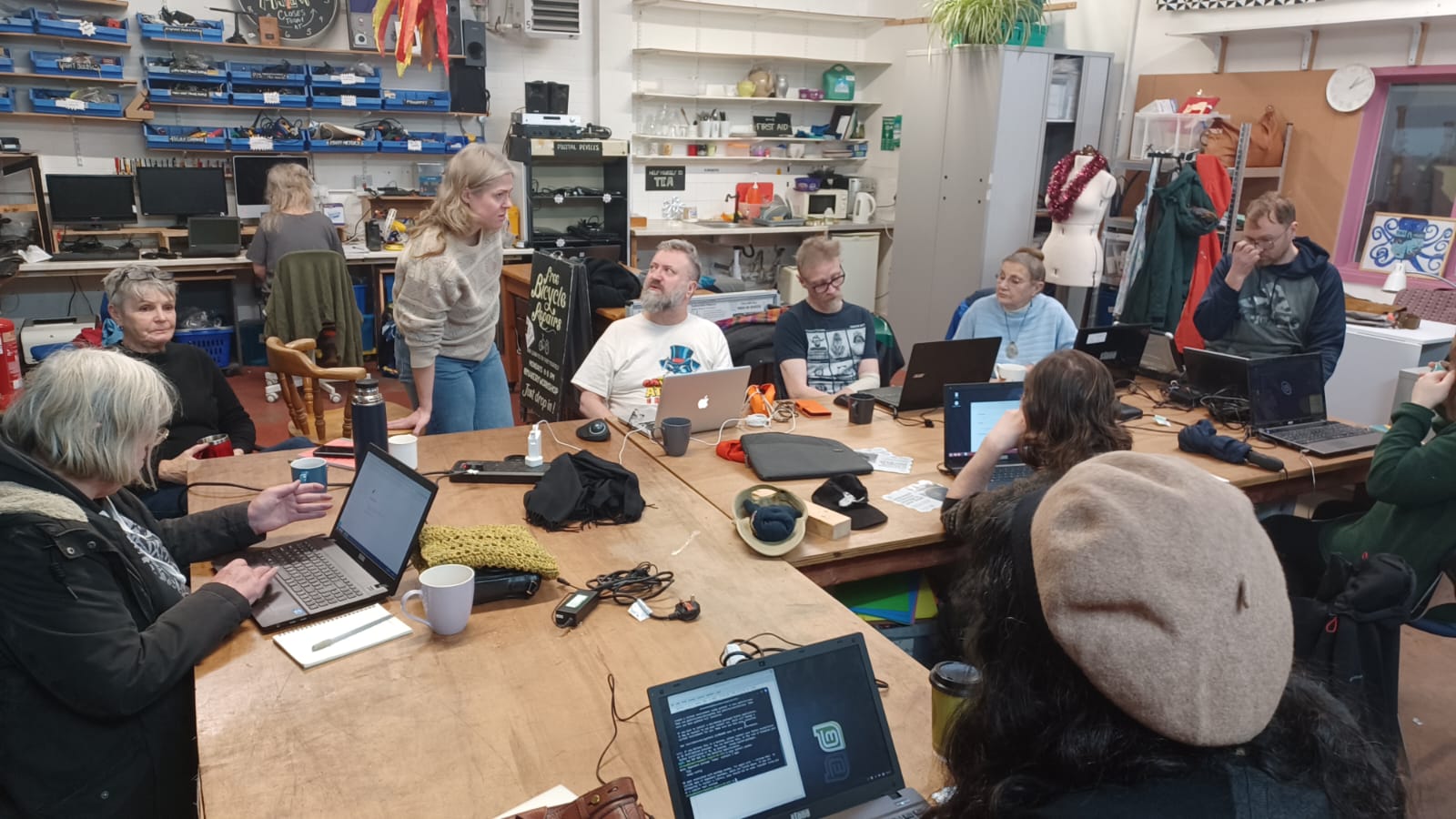
We ran a 5 week pilot in November and December which had a week of planning and then 4 main session in which we covered:
- 1. Websites: looking at static html sites like back in the 90s, how to use modern static site tools like hugo / jekyll.
- 2. Installing Linux: a session outlining how to install linux on a laptop.
- 3. Storage, back ups and archives: We looked at using external hard drives as an alternative to cloud storage.
- 4. Open session and planning for next year: A recap and more open session to practice projects. The end goal here was to evaluate the session, document our progress and to plan the next computer club sessions.
Find out more on the Green and Pleasant Computer Club home page
Case Study - Game making via coding (or coding via game making)
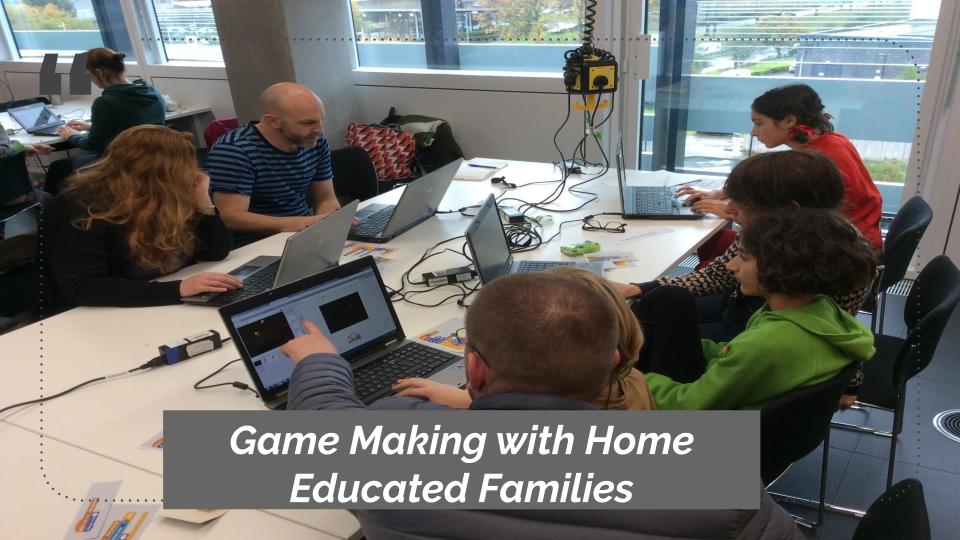
The process of learning from making and coding games is well established and can have many benefits. Our approach has a focus on the community and collaborative elements of the process. The importance of being able to bring your own interests and experience into the game making process is really useful to keep young people engaged and help intergenerational peer learning. We call process of sharing your experience JAMMing, an idea that came out of Mick’s PhD work.
The last session involves inviting a wider group of friends (or anyone we can grab), to come an play the games we create on mini arcade boxes. In the photo below we were working in Manchester Met Uni Brooks building and grabbed some students to test our games.
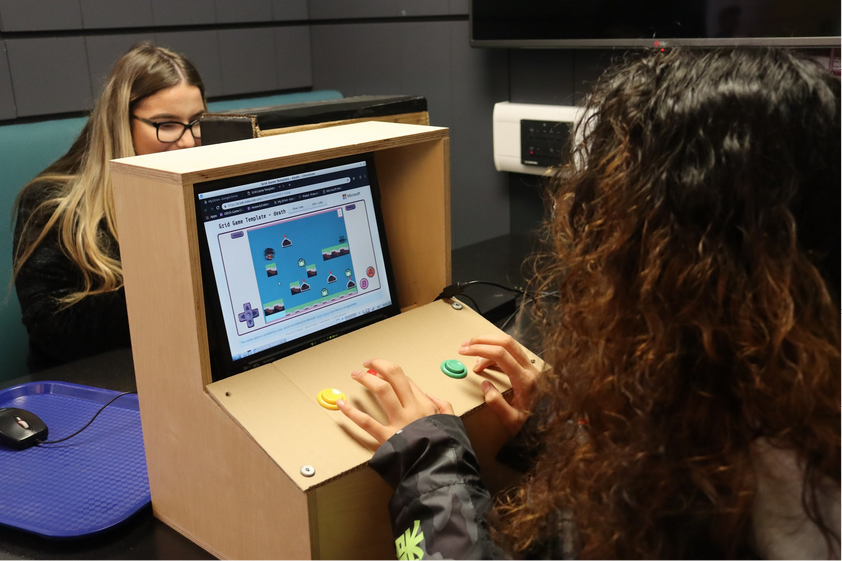
Technically the project can use both text coding or block coding. Find out more on our full projects page
Case Study - Sketchy Robots & Buggy Battles: Coding & Making
Sketchy Robots

The Sketch Robots project ask participant to create a wonky robot with and bring it to life to distribute a positive message if your choice. While we have undertaken this project previously with groups of young people, we really want to try it with intergenerational groups or even with adults as a critical making exercise.
Read about how we used Sketchy Robots within the Family Fixit campaign within Ferney Lee Primary School.
Buggy Battles
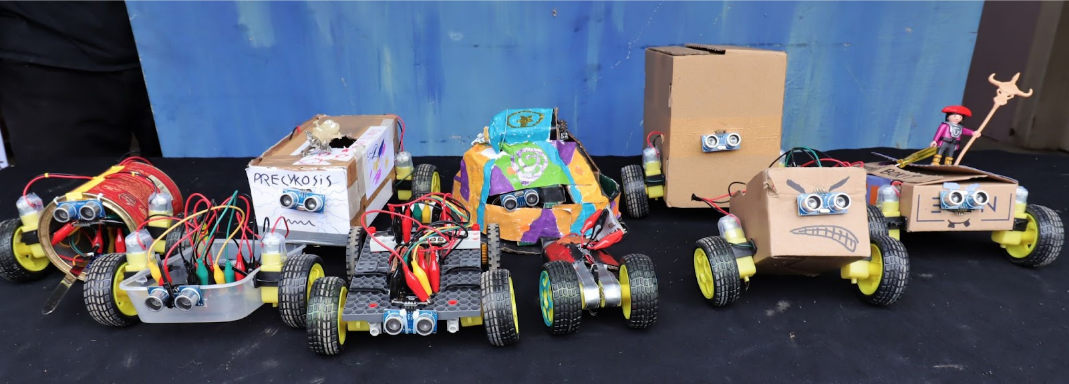
We work with participants use the Crumble micro-controller to make intelligent buggies that can sense and respond to their environment (and then attack other buggies). Participants learn about basic circuits, as well as designing and building using everyday materials from the recycle bin. The coding is Scratch-based; easy and accessible. The last session comprises an open Battle event that family can attend; there will be no winners or losers, it will be chaotic and fun.
We have in-depth experience of running this workshop but would like to work with partners to fund the creation of resources that would be distributed freely to other practitioners.
Find out about some of our other projects either past, present or in development on our projects page